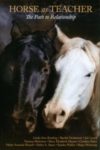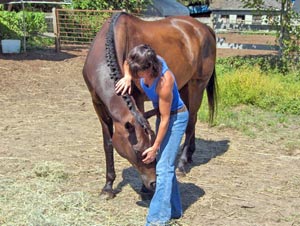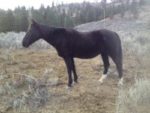Posts Tagged ‘alternative therapies’
Kidney Care
We meet midway through the summer to bring you more great insight from Madalyn Ward – this time on kidney heath.
Kidneys, in any being, are a powerhouse in your body and provide vital functions. Breakdown or malfunction of the kidneys can lead to serious health issues that affect the rest of the body in dramatic way. Madalyn continues to merge Western and Traditional Chinese Medicine interpretations of kidney problems and solutions – the best of both worlds.
Below is Part 1 – stay tuned for Part 2 next week!
~~~~~~~~~~~~~~~~~~~~~~~~~~~~~~~~~~~~~~~~~~
Holistic Horse Care: Kidney Problems
Kidney problems in horses probably happen much more often than we realize. Low back pain is a classic symptom of kidney problems in people. In horses low back pain can easily be attributed to other more common problems such as hock soreness or overwork. A good holistic horse care program will include appropriate horse feeds for the kidney but some conditions will need additional treatment in the form of herbs or acupressure.
TCM Approach
In Western Medicine the kidney is primarily an organ that maintains water balance and removes toxins from the blood. Traditional Chinese Medicine (TCM) recognizes these roles but also several more critical functions. In TCM the Kidneys store the essence or Qi that is inherited at birth. This Pre Heaven Qi is used up during life and can only be partially replenished with Post Heaven Qi from food. In TCM the Kidney is responsible for the vitality.
In TCM the Kidney Essence is the foundation for the Marrow. Marrow in TCM is the substance that makes up the bones, bone marrow, brain and spinal cord. Strong Kidneys therefore mean strong bones, teeth, and a healthy nervous system. In TCM the Kidneys are the house of the Will Power. When the Kidneys are strong the mind can stay focused on goals but if weak the mind will become easily distracted or depressed.
The Kidneys are considered to be the origin of the heat that fuels all the bodily functions. This Fire comes from the Gate of Vitality that resides between the right and left kidneys. The Kidneys are the origin of both the Fire and the Water in the body, the Yang and the Yin.
In summary, Healthy Kidneys mean:
- Strong vitality
- Healthy bones and teeth
- A balanced nervous system
- Strong will power and focus
- Healthy metabolism
Weak Kidneys manifest as:
- Poor vitality
- Weak bones and teeth
- Weakness in the lower back and limbs
- Nervousness
- Fluid imbalances leading to stocking up or fluid in the lungs
- Weak metabolism, assimilation problems and insulin resistance
Find Madalyn Ward online:
http://www.holistichorsekeeping.com
http://www.facebook.com/HorseHarmony
Twitter: madalynward
From Holistic Horsekeeping – Pain Explained with Traditional Chinese Medicine
Another great resource is Madalyn Ward’s Holistic Horsekeeping. I highly recommend subscribing to her newsletter…as well as updates from Passion for Horses! 🙂
I’d like to share with you her post on using Traditional Chinese Medicine in assessing your horse’s health. If you’ve ever visited a Chinese pharmacy or herbalist, you’ll be amazed by the results that can be seen just by combining the right and different amounts of herbs and essences. Chinese medicine takes into consideration not only your outward physical symptoms but what your energies are like inside.
Read on for some great insight!
======================================
Pain Explained with Traditional Chinese Medicine – Part 1
Ever wonder why the miracle product that works on so many horses does not do a thing for your horse? Or why the wonder cure you found and shared with all your friends did not help their horses one little bit. The reason is not all pain is the same. Western Medicine tends to lump all pain symptoms together and treat them the same. Traditional Chinese Medicine (TCM) divides types of pain into 5 types and treats each type quite differently.
According to TCM, except for acute injury, all pain is the result of an underlying weakness in the immune system. A healthy body should have an abundance of defensive Qi (Wei Qi) circulating through the meridians to protect against external pathogens such as Wind, Cold and Damp. Qi represents the life force of the body and meridians are the pathways through which this energy flows. TCM looks at pathogens and Wind, Cold, Heat, and Damp where Western Medicine looks at viruses, bacteria and parasites. Anyone who has experienced the achy joints and muscles with the flu, a sinus headache or Lymes disease understands how viruses, bacteria and parasites can cause pain.
Pain in TCM is referred to as a Bi Syndrome. Bi means obstruction in the meridians caused by the invasion of Wind, Cold and Damp. Bi
syndrome may show as pain, soreness, numbness, or swelling of the joints, bones, muscles, and connective tissues. Western Medicine would
label these conditions as rheumatism, arthritis, osteoarthritis, bursitis, fibromyalgia, sciatica, etc.
The 5 types of pain according to TCM are Wandering Bi(Wind), Painful Bi(Cold), Fixed Bi(Damp), Febrile Bi(Heat) and Bony Bi(long standing Damp).
Wandering Bi acts like wind with rapid onset of pain that moves around in the body. The soreness and pain can be in the joints or muscles and movement will be limited. Western Medicine would look at this type of pain as fibromyalgia or sciatica. This is the horse that is off but for no apparent reason. Lameness exams can be frustrating in that flexion tests and blocking will not identify the area of pain.
Painful Bi acts like cold with contraction and congealing. The pain is severe and stabbing in nature. It can be in the muscles or joints with limited movement and coldness of the tissues. Bursitis and early stage arthritis would fit the Western Medicine model. This is the horse that starts out very lame and then moves better as he warms up. Flexion tests and joint blocks may identify the area of pain but little will show up on radiographs or ultrasound.
Fixed Bi acts like damp with edema, numbness and stiffness more than pain. Wet weather will aggravate symptoms. Western Medicine would call
this type pain rheumatism. Stocking up in the legs would also be a characteristic of Fixed Bi. This horse will have sound days and lame days depending on the weather. The area of concern may be obvious due to swelling but other times no outward symptoms are seen.
Febrile Bi acts like fire with rapid onset of redness, swelling and severe pain. The pain can be in more than one area and movement will be very restricted. Pressure will increase the pain and the patient may be irritable. Joint infections fit into the category of Febrile Bi. Joint infections can occur from tiny punctures that don’t show up as a wound. If you suspect a joint infection call your vet immediately. Hoof abscesses are another example of Febrile Bi. They are less of an emergency but still require immediate attention to relieve suffering.
Bony Bi is the result of long term invasion of Wind, Cold and Damp. You will see muscle atrophy, joint deformity and joint degeneration. Osteoarthritis is the Western equivalent of Bony Bi. Bony Bi will show up on radiographs but at this stage the condition is very difficult to treat.
Types of TCM Pain:
Wandering Bi(Wind)
Painful Bi(Cold)
Fixed Bi(Damp)
Febrile Bi(Heat)
Bony Bi
Treatment and prevention for all Bi syndromes should begin with a strengthening of the Wei Qi. Overall health and nutrition should be examined. Nutritional products such as Citrus C/Q, Bleeder’s Blend, PrePro and APA blend will support the Lungs(Wandering Bi), Spleen(Fixed Bi) and kidneys(Painful Bi). General supportive accupressure points include, LI 11, GV 14, SP 6, ST 36 BL 11 and GB 39.
Treatment for individual Bi syndromes will be discussed next month.
For further information about accupressure points visit
http://www.animalacupressure.com
Please also enjoy all of Dr. Ward’s web resources:
http://www.holistichorsekeeping.com
http://www.horseharmony.com
http://www.horseharmonytest.com
http://blog.horseharmony.com
http://www.yourhorsebook.com
http://www.facebook.com/HorseHarmony
Twitter: @madalynward
Equine Massage- Anna’s Story Pt 3
So you have decided that maybe your horse would benefit from a massage, but you would like to know what to expect. First, the therapist should take a thorough case history (and in any case where there is a possibility that a massage is contraindicated, the attending veterinarian needs to be contacted first). Next, it is ideal to see the horse move (unless they are on stall rest at the time). It is possible to either lunge the horse, trot it in hand, or tack up and ride. This is especially helpful in situations where the problem is only perceived during certain moments, for example during the left canter lead transition, or lateral work to the right. Next is a hands on assessment during which I gently Read the rest of this entry »
Equine Massage- Anna’s Story Pt 2
So why would someone get their horse massaged? I routinely work on a huge range of horses. Some are retired and their owners do their best ot keep them comfortable. While massage cannot alleviate the joint pain associated with arthritis, it can definitely decrease the muscle tension that eventually develops due to chronic conditions. Some horses are coming back from an injury and the massages are part of a rehabilitative process (with attending veterinarian’s permission and guidance). In these situations the massages help Read the rest of this entry »
Shiatsu Massage for Horses- An Introduction
Shiatsu is a Japanese word meaning finger pressure. Shi means “”finger”” and atsu means “”pressure””. Shiatsu massage is very similar to acupuncture as it works with the same principles being that certain points on and inside the body if stimulated properly, will have a positive effect on the body’s ability to heal itself and restore health.
Shiatsu is both Read the rest of this entry »



